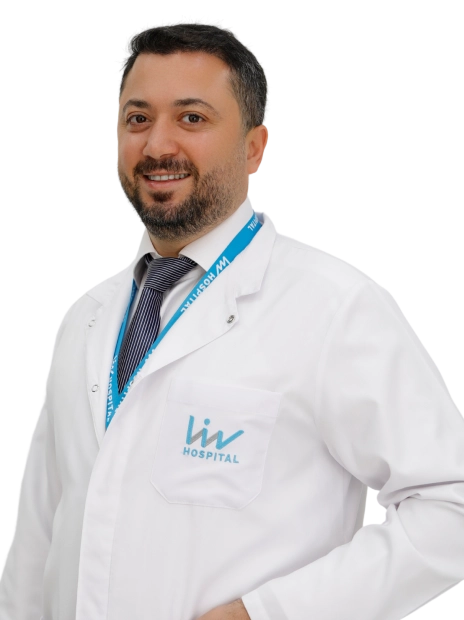Understanding Gastroenterology Surgery: What Patients Need to Know
Gastroenterology surgery deals with operations on the digestive system, including the esophagus, stomach, intestines, liver, pancreas, and gallbladder. Learning about these surgeries helps patients know what to expect if they need treatment for digestive problems.
Gastroenterology surgery includes many types of procedures, from simple, less invasive options to more involved operations. Surgeons who perform these surgeries are highly trained in treating digestive system problems. People may need these surgeries for ongoing digestive issues, cancer, or other conditions that do not improve with medicine.

Types of Gastroenterology Surgeries and Their Benefits
Different gastroenterology surgeries are used to treat different health problems. Some of the most common procedures include:
- Laparoscopic Surgery: This minimally invasive technique uses small incisions and specialized instruments to perform surgery. Benefits include reduced recovery time, less pain, and minimal scarring compared to traditional open surgery.
- Endoscopic Procedures: These involve the use of an endoscope, a flexible tube with a camera, to diagnose and treat conditions within the GI tract. Common endoscopic procedures include colonoscopy and upper endoscopy, which can help identify issues such as polyps, ulcers, or tumors.
- Bariatric Surgery: This is a type of surgery for weight loss that can also improve conditions such as obesity related diabetes and sleep apnea. Procedures like gastric bypass and sleeve gastrectomy alter the digestive system to promote weight loss and improve overall health.
- Gallbladder Surgery: Cholecystectomy is the surgical removal of the gallbladder, often performed when a patient has gallstones causing pain or infection. This procedure can alleviate symptoms and prevent future complications.
- Colectomy: This surgery involves the removal of part or all of the colon and is typically performed to treat conditions such as colorectal cancer, inflammatory bowel disease (IBD), or diverticulitis.
Each surgery has its own pros and cons. The best option depends on your health and the condition being treated.
What to Expect During Gastroenterology Surgery: A Patient Guide
Getting ready for gastroenterology surgery can feel overwhelming, but knowing what will happen can make it easier. Here’s what you can expect:
- Pre operative Consultation: Before surgery, patients will have a consultation with their gastroenterologist. This includes a thorough review of medical history, physical examination, and possibly additional tests such as imaging or blood work.
- Preparation Instructions: Patients will receive specific instructions on how to prepare for surgery, which may include dietary restrictions, medication adjustments, and arrangements for transportation to and from the surgery center.
- Anesthesia: Most gastroenterology surgeries are performed under general anesthesia, meaning patients will be asleep during the procedure. The anesthesiologist will discuss the anesthesia plan and address any concerns.
- Surgery Day: On the day of surgery, patients will check in at the surgical center. After final preparations, they will be taken to the operating room where the procedure will be performed. The duration of the surgery varies depending on the type of procedure.
- After surgery, you will stay in a recovery area until you are stable. Some pain or discomfort is normal, but medicine can help manage it. You’ll get clear instructions on caring for your surgery site and what activities to avoid.
The Role of Advanced Gastroenterology Surgery Centers
Advanced gastroenterology surgery centers use the latest technology and have teams of skilled healthcare professionals. They offer complete care, from diagnosis to treatment and follow up.
Picking a trusted surgery center is important for a good experience. Find a place with skilled surgeons, modern equipment, and a focus on patient care. Many centers also provide helpful information and support for patients.
Gastroenterology vs. General Surgery: Key Differences Explained
Both gastroenterologists and general surgeons do surgeries, but they focus on different areas. Gastroenterologists treat digestive system problems and often use less invasive methods. General surgeons work on many types of surgeries, not just those involving the digestive system.
If you have digestive problems, it’s best to see a gastroenterologist for care that fits your needs. If you need surgery, your gastroenterologist may work with a general surgeon to give you the best results.
Recovery After Gastroenterology Surgery: Tips for Patients
How you recover after gastroenterology surgery depends on the type of procedure you had. Still, these general tips can help you heal well:
- Follow Post operative Instructions: Adhering to the surgeon’s guidelines regarding activity levels, diet, and wound care is crucial for a successful recovery.
- Manage Pain Effectively: Patients may experience discomfort post surgery. Pain management strategies, including prescribed medications and alternative therapies, can help ease pain and promote healing.
- Stay Hydrated and Nourished: Proper nutrition and hydration are vital during recovery. Patients should gradually reintroduce foods as tolerated and focus on a balanced diet to support healing.
- Monitor for Complications: Patients should be vigilant for any signs of complications, such as excessive bleeding, infection, or severe pain. Promptly reporting these symptoms to a healthcare provider is essential.
- Gradual Return to Activities: Patients should gradually resume normal activities based on their comfort level and the surgeon's recommendations. Physical activity can help improve recovery, but high impact activities should be avoided until cleared by the surgeon.

Common Conditions Treated with Gastroenterology Surgery
Gastroenterology surgery addresses a variety of conditions, including:
- Colorectal Cancer: Surgical intervention is often necessary for cancer treatment, including colectomy or other procedures to remove tumors.
- Inflammatory Bowel Disease (IBD): Conditions like Crohn’s disease and ulcerative colitis may require surgery if medications fail to control symptoms.
- Gallbladder Disease: Gallstones and inflammation can necessitate gallbladder removal.
- Obesity: Bariatric surgery can be a life changing option for individuals struggling with obesity and related health issues.
Understanding these conditions and the available surgical options empowers patients to make informed decisions about their health.
Gastrointestinal Tests and Procedures
- Colonoscopy: Screening for colorectal cancer and polyp removal.
- Endoscopy (EGD): Examining the esophagus, stomach, and duodenum for reflux, ulcers, or bleeding.
- Capsule Endoscopy: A swallowable camera captures images of the small intestine.
- ERCP and EUS: Advanced imaging and treatment for bile ducts and pancreas.
- Breath and Stool Tests: To assess infections, inflammation, or intolerances.
- Imaging: Ultrasound, CT, MRI, or elastography for liver and organ assessment.
Does Gastroenterology Include the Liver?
Yes. Liver care (Hepatology) is a major part of gastroenterology. GI specialists diagnose and manage fatty liver, hepatitis, cirrhosis, autoimmune liver diseases, and bile duct disorders. Tests like ultrasound, elastography, or MRI help evaluate inflammation and fibrosis.
Pediatric Gastroenterology
Pediatric GI specialists treat digestive, liver, and nutritional issues in infants, children, and adolescents. Common conditions include reflux, food intolerances, constipation, chronic abdominal pain, and inflammatory bowel diseases. Early care supports healthy growth and development.
Gastroenterology Surgery Costs: What You Should Know ?
The price of gastroenterology surgery depends on the procedure, where it’s done, and your insurance. Be sure to talk with your doctor and insurance company about costs before your surgery.
Patients should inquire about the following:
- Insurance Coverage: Understanding what is covered by insurance can help manage out of pocket expenses.
- Payment Plans: Many surgical centers offer payment plans to help patients manage costs.
- Additional Fees: Watch out for extra costs like anesthesia, facility charges, and follow up visits.
Choosing the Right Gastroenterology Surgery Center
Choosing the right gastroenterology surgery center is an important part of your care. Here are some things to think about:
- Accreditation: Ensure the center is accredited and meets high standards of care.
- Surgeon Experience: Research the qualifications and experience of the surgeons performing the procedures.
- Patient Reviews: Look for patient testimonials and reviews to gauge the quality of care provided.
- Support Services: Consider centers that offer comprehensive support services, including counseling and nutritional support.
Taking time to pick a trusted surgery center can help you have a better and safer experience.

When surgery is recommended for a digestive system condition—whether due to tumours, chronic disease or structural problems—you deserve a clear explanation of what the procedure involves, why it’s needed and what to expect afterwards.
Who manages G-tubes: gastroenterology or surgery?
The management of G-tubes (gastrostomy tubes) typically involves both gastroenterologists and surgeons. Gastroenterologists may oversee the nutritional aspects and ongoing care of patients with G-tubes, while surgeons are responsible for the initial placement and any necessary revisions or complications related to the G-tube. Coordination between these specialists ensures comprehensive care for patients requiring G-tube management.
Who manages G-tubes: gastroenterology or surgery?
The management of G-tubes (gastrostomy tubes) typically involves both gastroenterologists and surgeons. Gastroenterologists may oversee the nutritional aspects and ongoing care of patients with G-tubes, while surgeons are responsible for the initial placement and any necessary revisions or complications related to the G-tube. Coordination between these specialists ensures comprehensive care for patients requiring G-tube management.
For more information about our academic and training initiatives, visit Liv Hospital Academy
Frequently Asked Questions Gastroenterology Surgery
What is gastroenterology surgery?
Gastroenterology surgery refers to surgical procedures that focus on the gastrointestinal (GI) tract, which includes the esophagus, stomach, intestines, liver, pancreas, and gallbladder. These surgeries are performed to diagnose, treat, or manage various conditions affecting the digestive system, such as cancer, inflammatory bowel disease, and gallbladder disease.
What is gastroenterology & GI surgery?
Gastroenterology & GI surgery encompasses a range of medical specialties that deal with the diagnosis and treatment of disorders related to the gastrointestinal tract. Gastroenterologists primarily focus on non-surgical treatments, while GI surgeons perform surgical interventions for conditions that require more invasive approaches. Together, they work to provide comprehensive care for patients with digestive health issues.
Is colorectal surgery gastroenterology?
Yes, colorectal surgery is a subspecialty within gastroenterology that specifically addresses conditions affecting the colon and rectum. This type of surgery may involve procedures such as colectomy, which is the removal of part or all of the colon, and is typically performed to treat conditions like colorectal cancer, diverticulitis, or inflammatory bowel disease.
Who manages G-tubes: gastroenterology or surgery?
The management of G-tubes (gastrostomy tubes) typically involves both gastroenterologists and surgeons. Gastroenterologists may oversee the nutritional aspects and ongoing care of patients with G-tubes, while surgeons are responsible for the initial placement and any necessary revisions or complications related to the G-tube. Coordination between these specialists ensures comprehensive care for patients requiring G-tube management.


